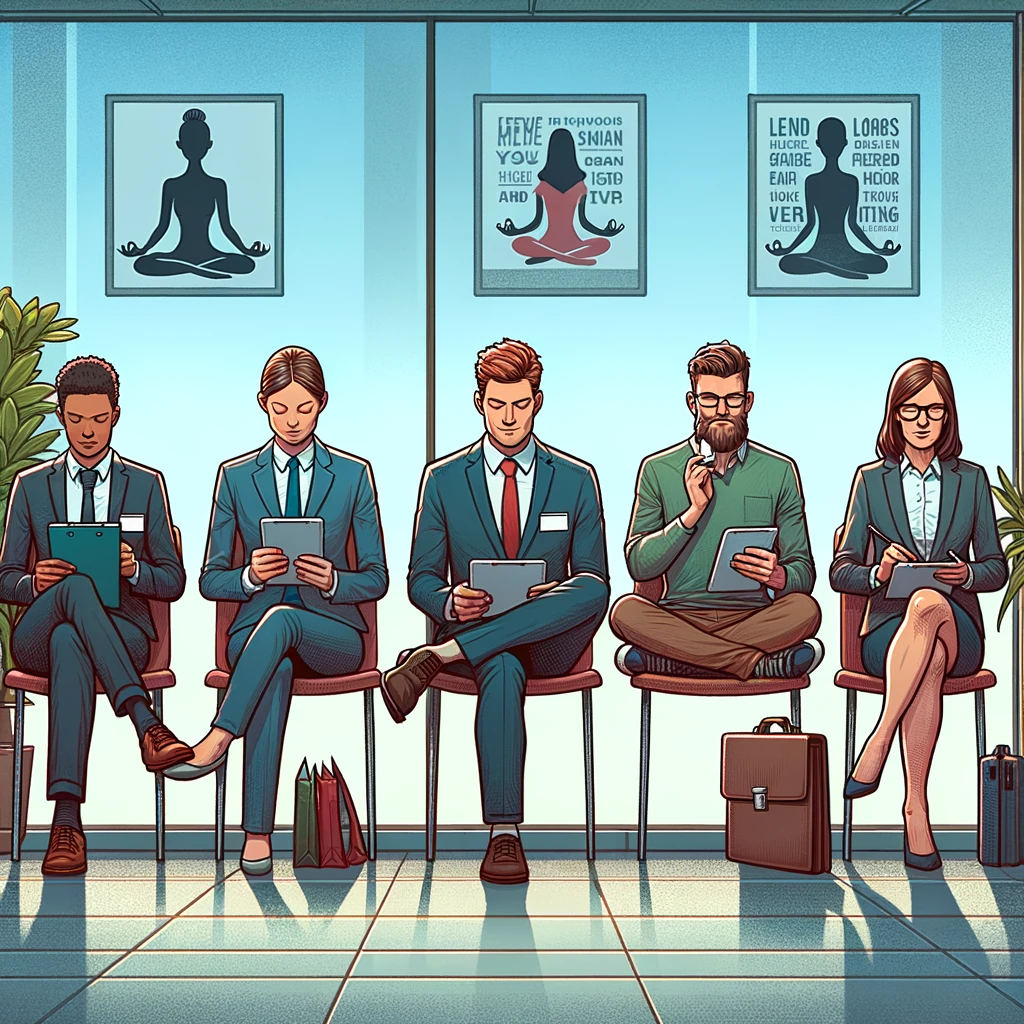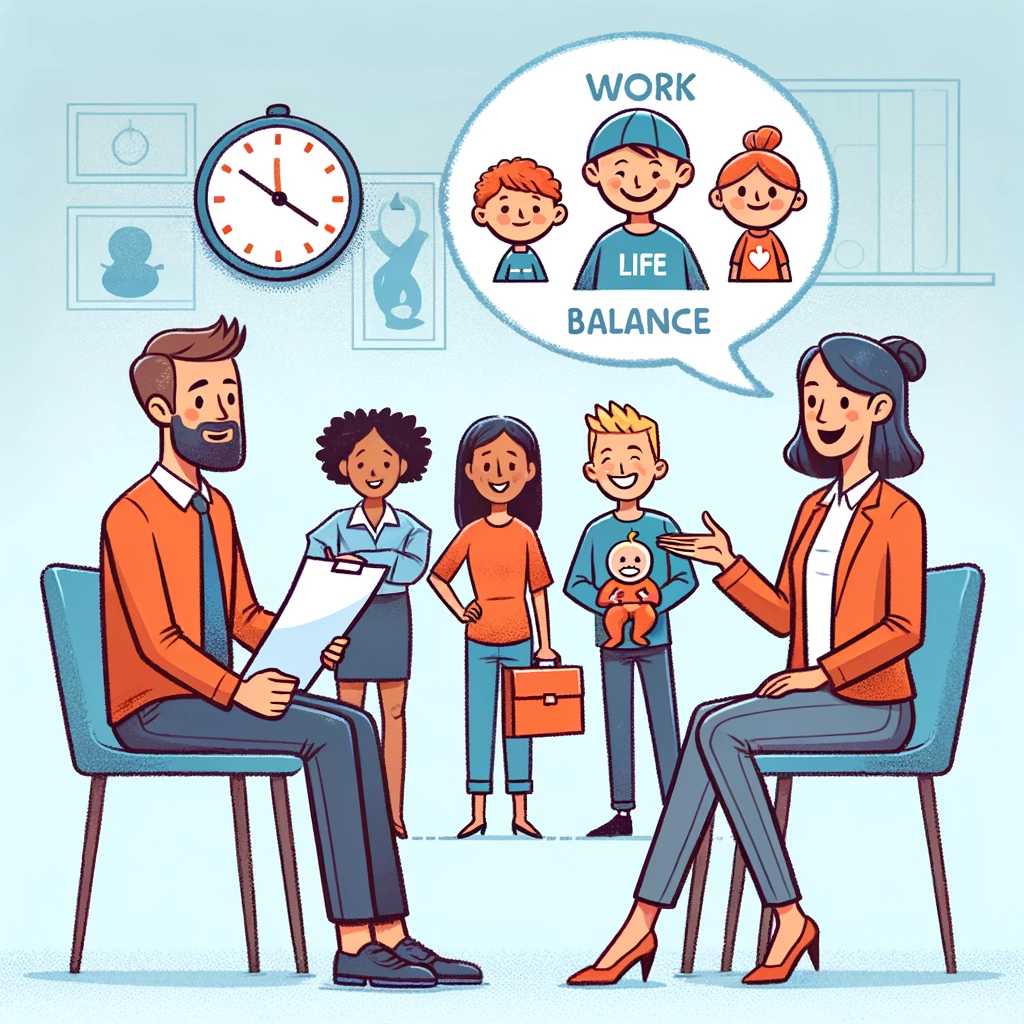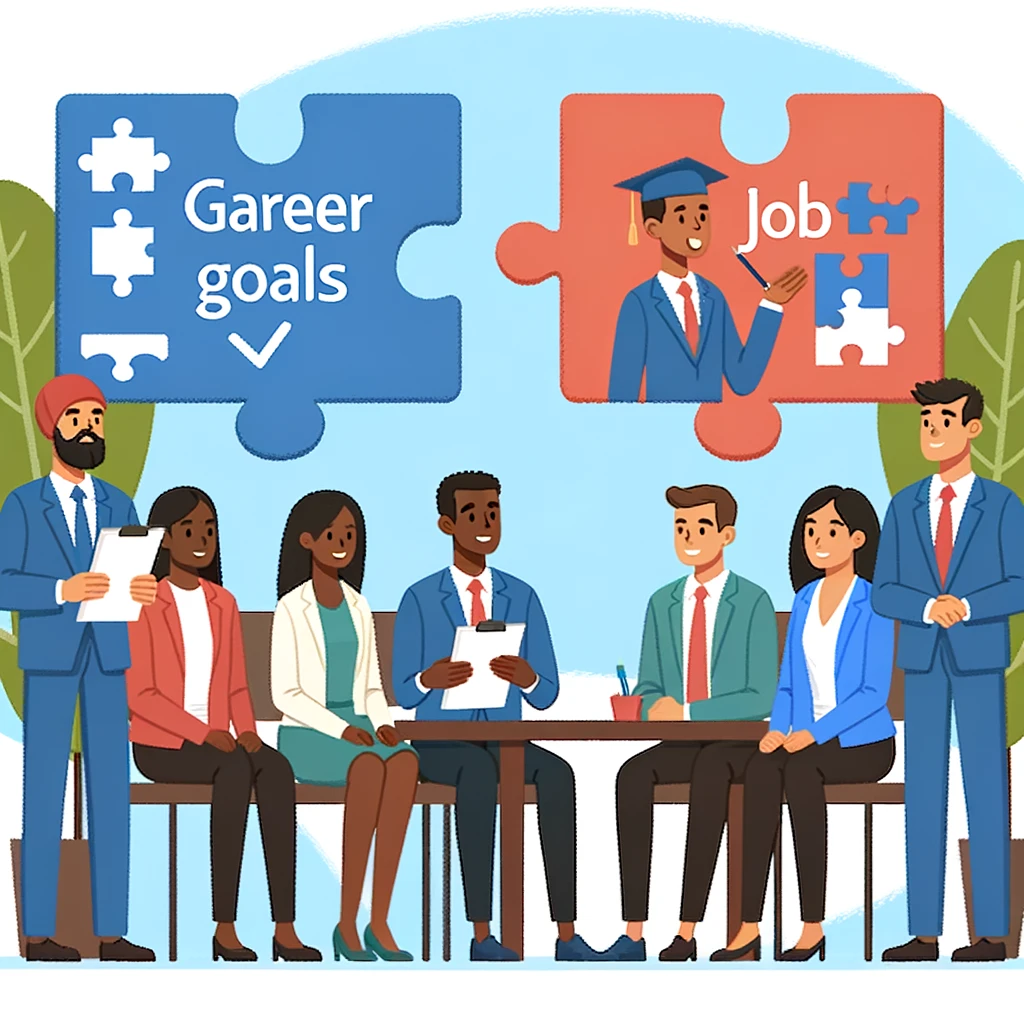Estimated reading time: 8 mins
Navigating a job interview can be a complex task, especially when faced with the pivotal question, “What are you looking for in your next job?” This inquiry, frequently posed by interviewers, is more than just a routine part of the interview process; it’s a critical moment that offers insight into your career aspirations, values, and fit for the role. Your response to this question serves a dual purpose: it not only communicates your professional desires and priorities to potential employers but also allows you to align these with the company’s offerings.

Effectively answering this question requires a blend of introspection and strategy. It’s an opportunity to reflect on your career trajectory, identify what truly matters to you in a workplace, and articulate these aspects in a way that resonates with the company’s ethos and the specifics of the role at hand. This introduction will guide you through understanding the question’s significance, preparing a thoughtful response, and providing concrete examples to illustrate how to craft an answer that balances authenticity with strategic alignment. By mastering this response, you position yourself not just as a candidate with clear professional goals but as a prospective employee whose aspirations and abilities align seamlessly with the opportunity presented.
Understanding the Question: “what are you looking for in your next job?”
When interviewers ask, “What are you looking for in your next job?”, it’s not a simple inquiry to fill conversation gaps; it’s a multifaceted question designed to uncover several layers of your professional persona. Firstly, this question serves as a litmus test to determine if your career aspirations and the realities of the job are in harmony. Employers are keen to understand if there’s a symbiotic fit between what you seek and what they offer, aiming to avoid future discord or dissatisfaction.
Secondly, this question is a subtle probe into your level of self-awareness and career maturity. It reveals whether you have given thoughtful consideration to your career path, rather than just aimlessly hopping from one job to another. It’s also a window into your priorities and values—whether you’re motivated by challenges, growth opportunities, work-life balance, or something else entirely.
Lastly, it’s an opportunity for the interviewer to gauge your understanding of and alignment with their company culture. How well your answer resonates with the company’s ethos can be a critical factor in their evaluation. Thus, understanding the depth and implications of this question is essential for providing a meaningful and impactful response.


Preparing Your Answer
Reflect on Your Career Goals
Reflecting on your career goals is a critical step in preparing for the question, “What are you looking for in your next job?” This reflection is not just about considering your next position, but about understanding the trajectory you envision for your career. Ask yourself where you see yourself in the next few years and what skills and experiences you need to get there. Consider the aspects of your current or past jobs that you have enjoyed and those you wish to avoid. Think about the industries or sectors that excite you, the size and culture of the company you want to be part of, and the kind of work-life balance you seek. This introspection helps in crystallizing your professional desires and aspirations, allowing you to articulate a more authentic and targeted response during interviews.
Research the Company
Conducting thorough research on the company is a fundamental step in preparing your answer. This involves going beyond the surface-level information and delving into the company’s history, mission, values, culture, and recent accomplishments or challenges. Check their website, social media profiles, and recent news articles for insights. Understanding the company’s industry position, competitors, and market trends can also provide context for your answer. Additionally, explore any employee reviews or testimonials to get a sense of the internal culture and work environment. This comprehensive understanding enables you to tailor your response, showing the interviewer that you have a genuine interest in the company and that your career goals align with their business objectives and values. This alignment is crucial, as it demonstrates that you’re not just looking for any job, but specifically a position within their organization.
Balance Honesty with Strategic Alignment
When crafting your answer, maintaining a balance between honesty and strategic alignment is essential. It’s important to be truthful about your career goals, but it’s equally vital to frame your answer in a way that showcases how your aspirations align with the potential role and company. This doesn’t mean disguising your true intentions; rather, it involves highlighting aspects of your career goals that genuinely resonate with the job you’re applying for. For instance, if you’re passionate about innovation and the company is known for its cutting-edge projects, emphasize this shared value in your response. This approach demonstrates not just authenticity but also a keen understanding of the company’s objectives and how you can contribute to them. Balancing these elements shows that you are not only a fit for the role but also someone who is likely to be engaged and motivated by the company’s environment and ethos.
Crafting Your Answer to “what are you looking for in your next job?”


Structure
An effective structure for your answer to the question “What are you looking for in your next job?” is akin to telling a short, compelling story. Begin by outlining your overarching career goals, offering a glimpse into your professional journey and aspirations. This sets the stage and provides context for your answer. Next, delve into specifics that correlate with the job description. This part of your response should demonstrate how your particular skills, experiences, and interests align with the role’s requirements and the company’s culture. Conclude by succinctly tying these elements together, explaining how the role and the company provide the perfect platform for achieving your career objectives and how you, in turn, can contribute to the company’s success. This structured approach not only conveys clarity of thought but also shows a strategic alignment of your career vision with the potential job opportunity.
Be Specific About What Are You Looking For in Your Next Job
Providing a specific response to the question of what you are looking for in your next job is crucial. General statements can make you seem unprepared or unsure of your career goals. Instead, detail the exact aspects you are seeking in your next position. For example, rather than saying you want a “challenging role,” explain the type of challenges you’re eager to tackle, such as leading high-stakes projects, innovating in a particular tech field, or expanding into international markets. Being specific about your aspirations shows that you have a clear vision for your career path. It also helps the interviewer understand how your goals and skills might align with the role and the company’s needs. This level of detail not only demonstrates your seriousness about your career development but also provides a concrete foundation for the interviewer to envision you in the role.
Focus on Growth and Contribution
When crafting your response to the question of what you’re looking for in your next job, emphasizing your focus on growth and contribution is vital. Employers are consistently on the lookout for candidates who are not just seeking personal advancement but are also keen on adding value to their organization. By highlighting your eagerness to grow, you demonstrate a commitment to continuous learning and adaptability, traits highly valued in the dynamic corporate world. Additionally, discussing how you plan to contribute reflects a team-oriented mindset and a drive to have a positive impact. Mentioning specific ways you hope to contribute, based on your skills and experiences, can illustrate your potential as a proactive and resourceful team member. This dual focus not only showcases your ambition but also signals your readiness to be an integral part of the company’s future successes.
Examples of “what are you looking for in your next job?”
Example 1: For a Leadership Role
“I’m looking for an opportunity where I can leverage my ten years of experience in team management and project execution to drive impactful results. At my previous job, I led a team of 15 and successfully increased our project delivery rate by 30%. I’m particularly drawn to your company because of your innovative approach to [specific field or project]. I believe my experience aligns well with your goals, and I am excited about the prospect of leading a team that’s pushing boundaries in the industry.”
Example 2: For a Creative Position
“In my next job, I’m seeking a role that allows me to expand my creative horizons and work on diverse projects. At my current position, I’ve had the opportunity to work on A, B, and C, which has significantly honed my design skills. I’m particularly impressed by [Company’s] work in [specific area or project], and I see a great opportunity to contribute my unique creative perspective and collaborate with a team that values innovation and out-of-the-box thinking.”
Example 3: For an Entry-Level Position
“As a recent graduate, I’m looking for a position where I can put my academic knowledge into practice and gain hands-on experience. I’m excited about opportunities that offer mentorship and learning, as continuous growth is essential for me. Your company’s commitment to [specific training programs, company culture, or values] really stood out to me. I’m enthusiastic about starting my career in an environment that encourages professional development and offers diverse opportunities to learn.”


Concluding “what are you looking for in your next job?”
Answering “What are you looking for in your next job?” is less about a right or wrong answer and more about how well your expectations align with what the company can offer. It’s an opportunity to demonstrate that you’ve thought critically about your career path and how the role you’re interviewing for fits into that journey. Tailoring your response to reflect both your career aspirations and the company’s offerings will show that you’re not only a good fit for the role but also someone who’s likely to be satisfied and motivated in the job. Remember, the goal is to engage in a mutual discovery process where both you and the employer learn if the opportunity is the right fit.
